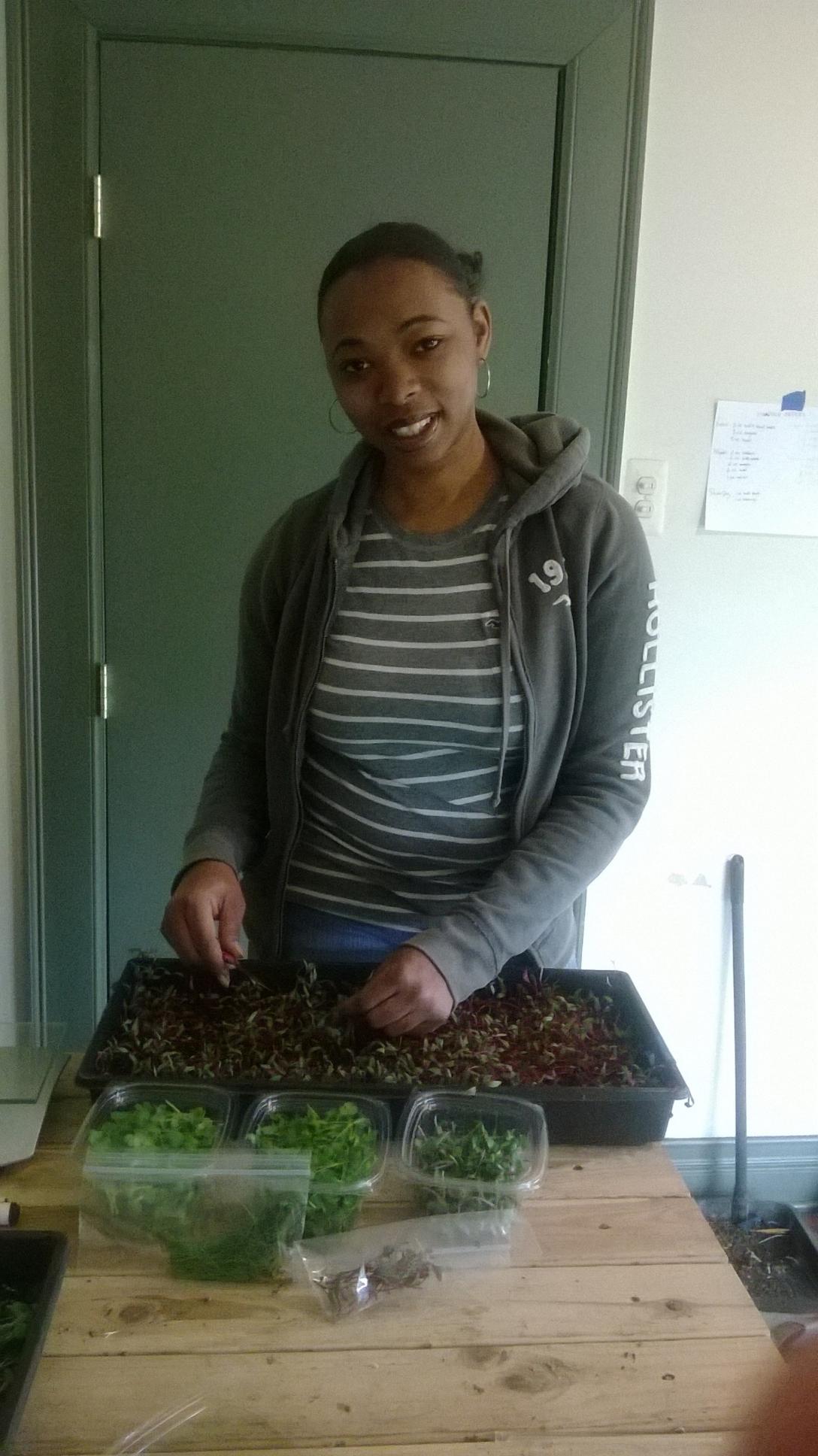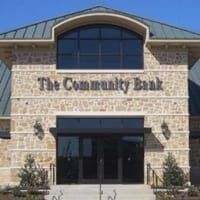PHILADELPHIA’S STORIED STRAWBERRY MANSION NEIGHBORHOOD SPROUTS NEW LIFE
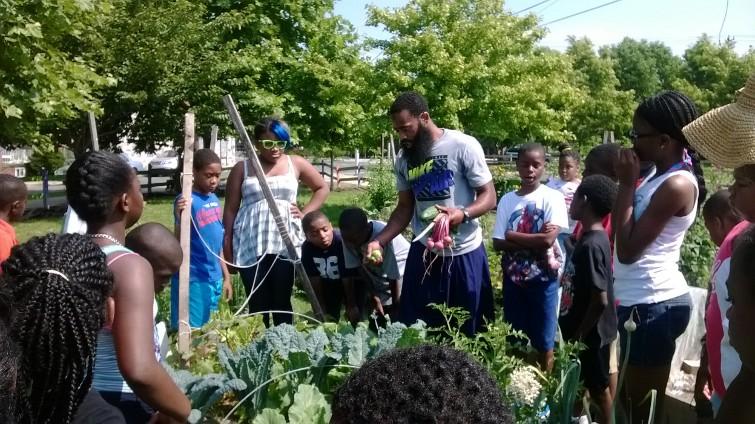
Strawberry Mansion in North Philly boasts a history as elegant as its name. Once home to some of the city’s wealthiest families, the neighborhood takes its name from a mid-nineteenth-century restaurant, located in a grand revolutionary-era residence, famous for serving fresh strawberries and cream to its guests. In the early 1900s, the area became home to a prosperous community of Jewish residents who moved from South Philly to settle in the greener enclaves adjacent to spacious and cool Fairmount Park. It also became one of the most racially integrated parts of the city as the great migration saw many Black families move north, find jobs in the factories owned by wealthy Jewish business owners, and buy homes nearby. As a result, Strawberry Mansion has one of the highest rates of multigenerational homeownership in the city. However, racial and civic unrest in the 1960s led to White flight from the city to the suburbs, and Strawberry Mansion was no exception. Many stately homes went unsold and were eventually abandoned; today the neighborhood has one of the lowest median household incomes in the city.
Enter Haile Johnston and Tatiana Garcia Granados, a young couple who, in the early 2000s, bought a brownstone townhouse in Strawberry Mansion. As they reached out and began to get to know their neighbors, they realized that the many vacant lots in the area presented the opportunity to beautify the neighborhood with the establishment of community gardens. In 2003, Johnston and Garcia Granados founded the East Park Revitalization Alliance (EPRA), a non-profit that brought neighborhood children together to clean up their blocks by clearing abandoned plots, planting flower gardens, while also participating in afterschool studies.
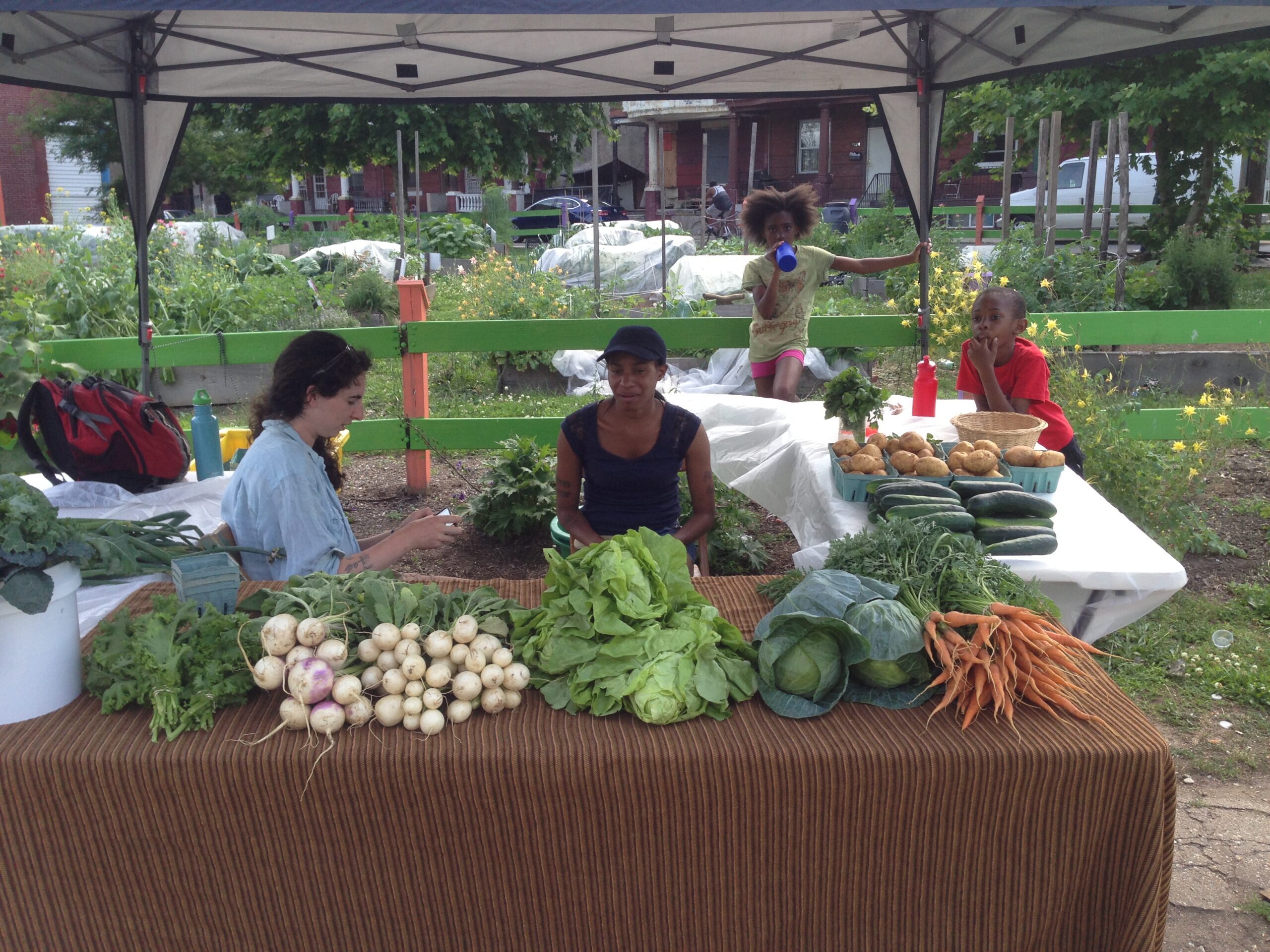
Given that there were no stores that sold fresh food and produce in the neighborhood, EPRA also began planting tomatoes, cucumbers, peppers, spinach, kale, collards and string beans. Eventually, this led Johnston and Garcia Granados to create a second non-profit, called Common Market, aimed at bringing the farm-to-table movement to urban environments.
Realizing they needed help in running EPRA, the couple brought Suku John on as Executive Director, who still serves in that position today. “Haley and Tatiana were pregnant with their first child and had a lot of things going on,” Suku remembers, “I had known them for some years, and had admired everything that they’d done. So, they asked if I would come in and help them out at least for a year or two. That was in 2008!”
Today, EPRA supports and teaches neighborhood residents to grow food in their own community garden plots, and runs both a produce farm stand every Wednesday that brings fresh greens at below-market prices to neighborhood residents, and a food pantry every Thursday that distributes canned dry goods and bread. Like most non-profits, EPRA was forced to cut back some of its in-person services during the pandemic. The food pantry, however, was one program where social distancing could be observed, and within weeks of shutdown, it nearly tripled its customers, serving between 300 to 400 households per week where previously it served 75 to 100. “A lot of people in the neighborhood, those who do have jobs, work in the service industry…so a huge chunk of neighborhood residents lost their jobs because of restaurant shutdowns,” Suku says. “I think that’s mainly why we saw this huge spike in our food pantry program that is run by my colleague, Gail Gayle. She’s phenomenal. She’s from the neighborhood, born and raised, and knows everybody.”
EPRA also runs a number of programs for local children under the umbrella term Healthy Choices—an after-school program; a six-week summer camp where kids can enjoy nature walks in nearby Fairmount Park and play soccer, basketball and tennis on its playing fields; as well as a teaching kitchen which children grow, cook and eat fresh fruits, herbs and vegetables.
Impact Deposits Corp. began supporting EPRA serendipitously. Vice President, Jay Stillman, had approached the Philadelphia Horticultural Society to explore the idea of creating a microgreens growing project that would hire the unemployed. “They said to me, you know, there’s a guy over there in Strawberry Mansion who’s already doing something like that, you should talk to him,” Jay remembers. “I met Suku and was hooked; I’m a Jewish boy from Long Island, we don’t really grow things much, but I got involved in helping out in the community gardens and learned so much.” That was nearly a decade ago and their relationship is still ongoing. “The support we get from Impact Deposits each quarter has really helped us maintain and grow our services each year,” Suku relates, “their commitment to doing good in this neighborhood is very real.”
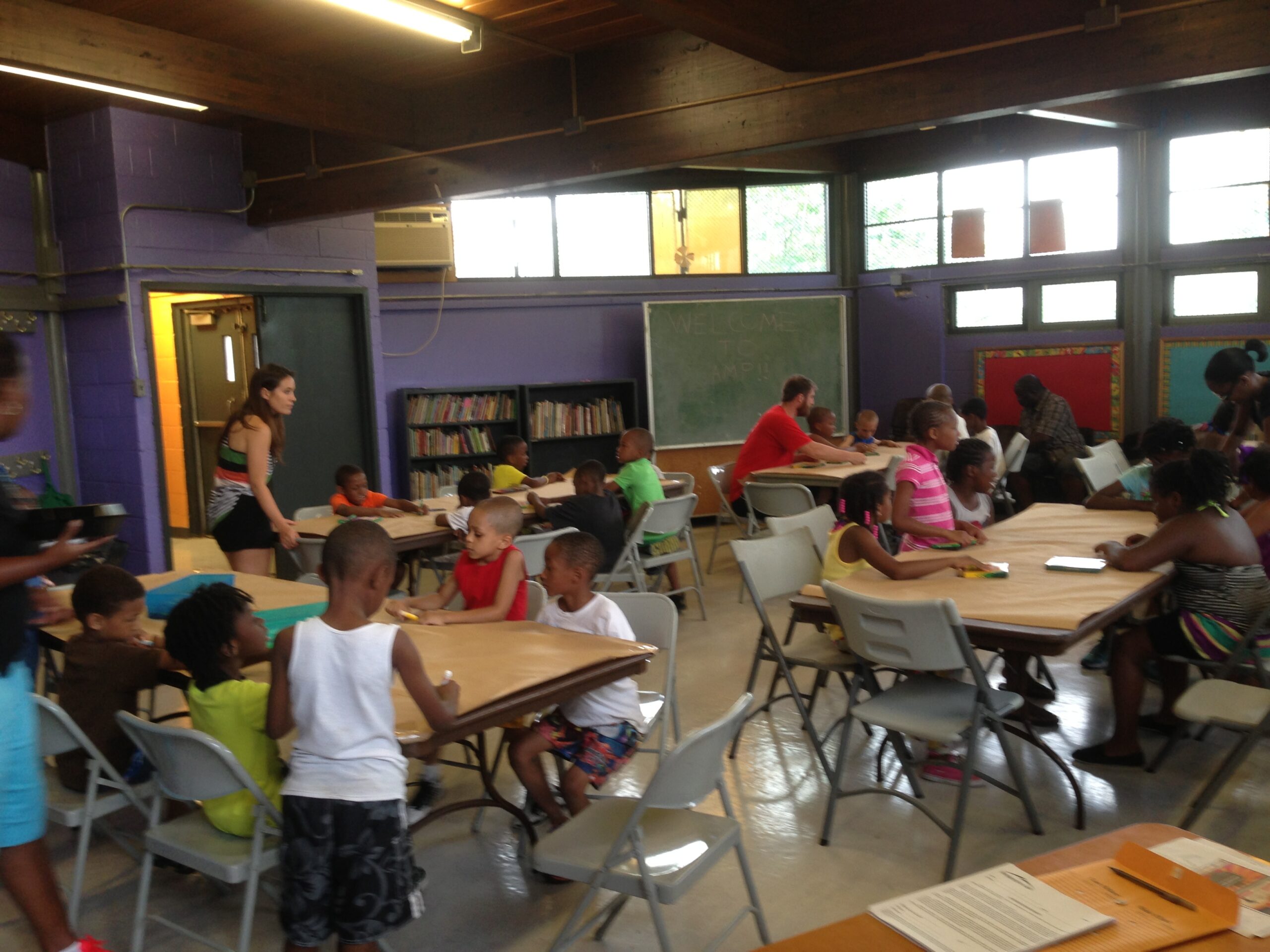
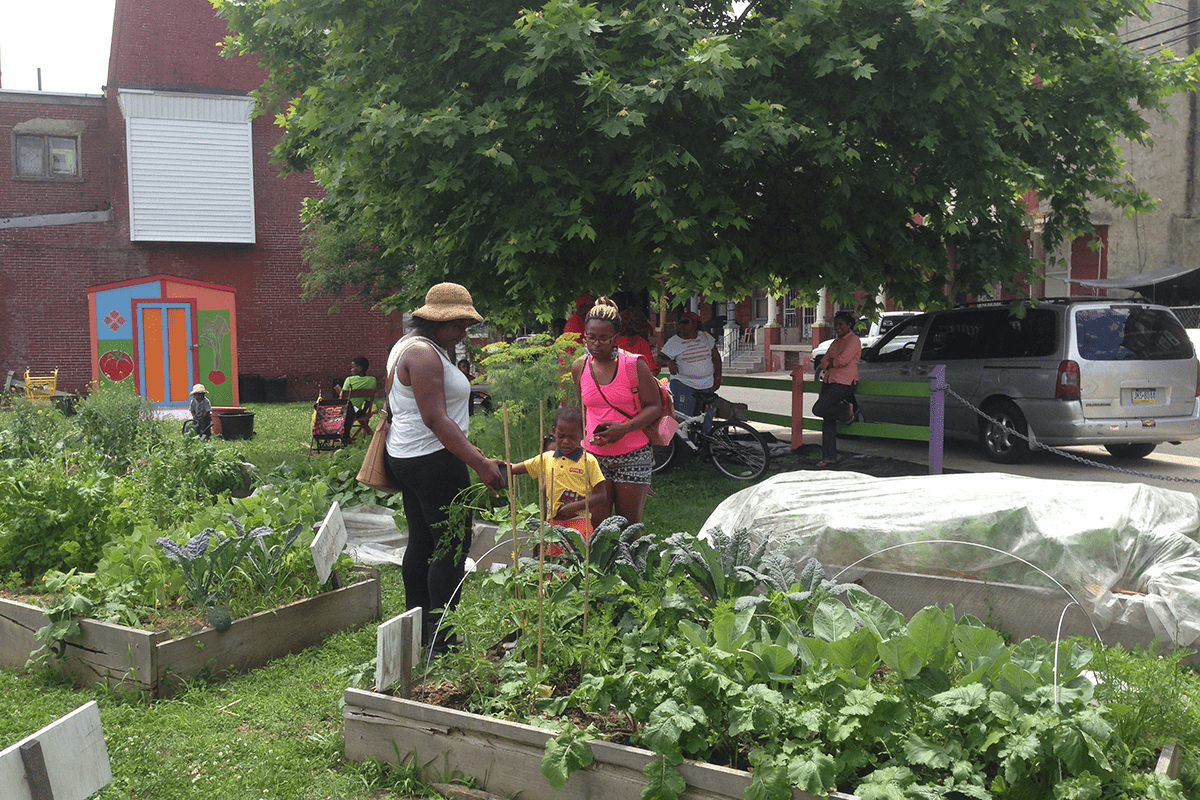
EPRA also runs a number of programs for local children under the umbrella term Healthy Choices—an after-school program; a six-week summer camp where kids can enjoy nature walks in nearby Fairmount Park and play soccer, basketball and tennis on its playing fields; as well as a teaching kitchen which children grow, cook and eat fresh fruits, herbs and vegetables.
Impact Deposits Corp. began supporting EPRA serendipitously. Vice President, Jay Stillman, had approached the Philadelphia Horticultural Society to explore the idea of creating a microgreens growing project that would hire the unemployed. “They said to me, you know, there’s a guy over there in Strawberry Mansion who’s already doing something like that, you should talk to him,” Jay remembers. “I met Suku and was hooked; I’m a Jewish boy from Long Island, we don’t really grow things much, but I got involved in helping out in the community gardens and learned so much.” That was nearly a decade ago and their relationship is still ongoing. “The support we get from Impact Deposits each quarter has really helped us maintain and grow our services each year,” Suku relates, “their commitment to doing good in this neighborhood is very real.”
HOW MICROGREENS SEEDED THE GROWTH OF THE IMPACT DEPOSITS PROGRAM
“When we first began thinking about how Impact Deposits Corp. could best help the most people, Bill Burdette had the idea that we should look at social entrepreneurship, by helping individuals who needed a steady income start their own microgreens growing business. Why? It’s low cost to set up, non-seasonal and easily replicable, with the potential to be really profitable. But we needed to know how to start. A friend introduced us to the Philadelphia Horticultural Society, who in turn introduced us to Suku John. We met with Suku at East Park Revitalization Alliance in 2012; he gave us a room in one of the row houses his non-profit maintained, and we provided the start-up money for lights, soil and equipment. Andrea Mitchell, a mother of three who staffed the youth programs at EPRA, volunteered to pioneer the effort and soon was growing all different kinds of greens. All that was left was to find a buyer, so I began visiting restaurants in Philadelphia to ask chefs if they were interested in buying local microgreens; right away I received an enthusiastic response. For over a year I drove all over the city delivering the greens, and Andrea’s business really took off. Eventually, as more restaurants signed on we set up a formal delivery system, and Andrea was able to maintain and grow her business until Covid shuttered restaurants in 2019.”
—Jay Stillman
